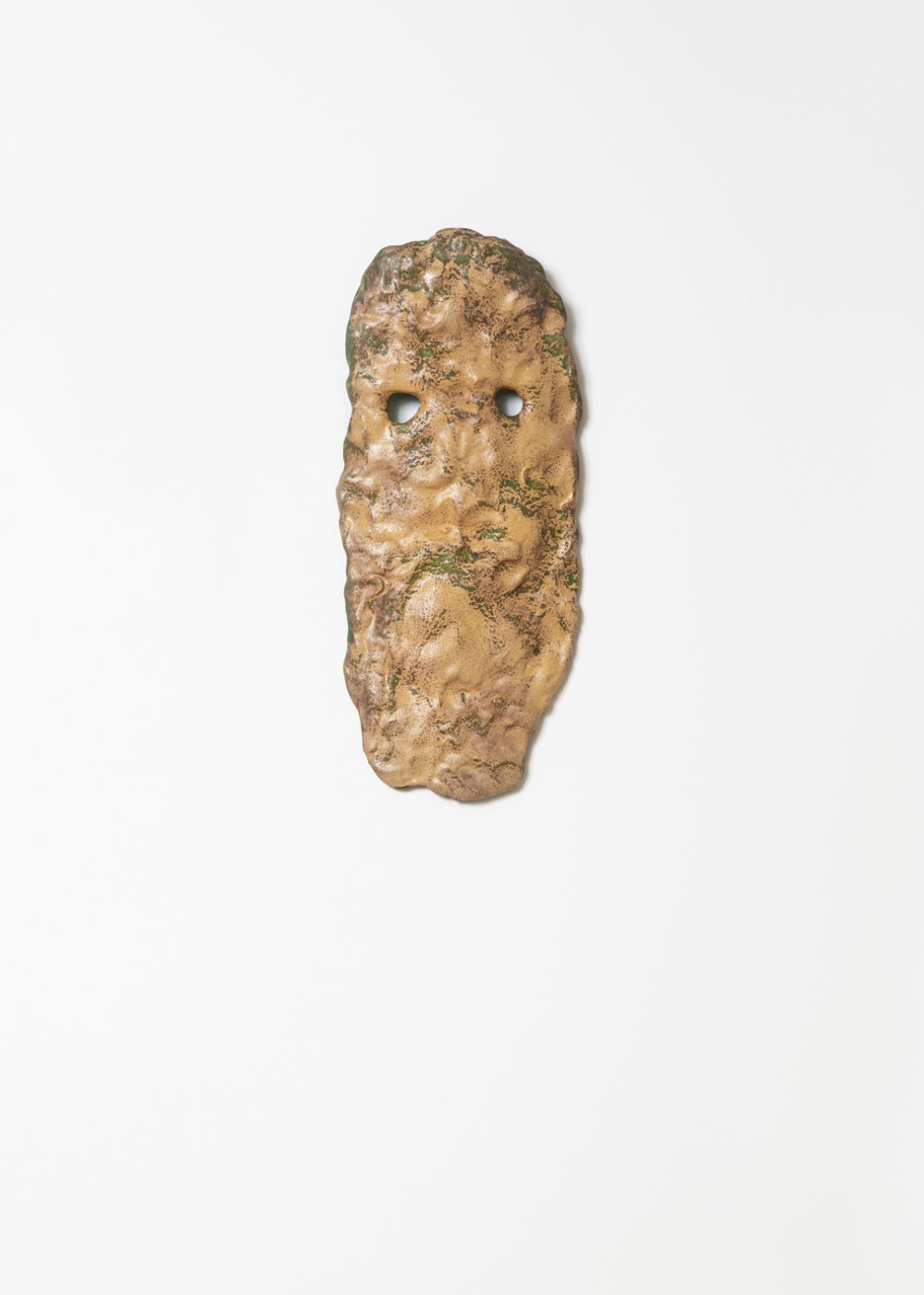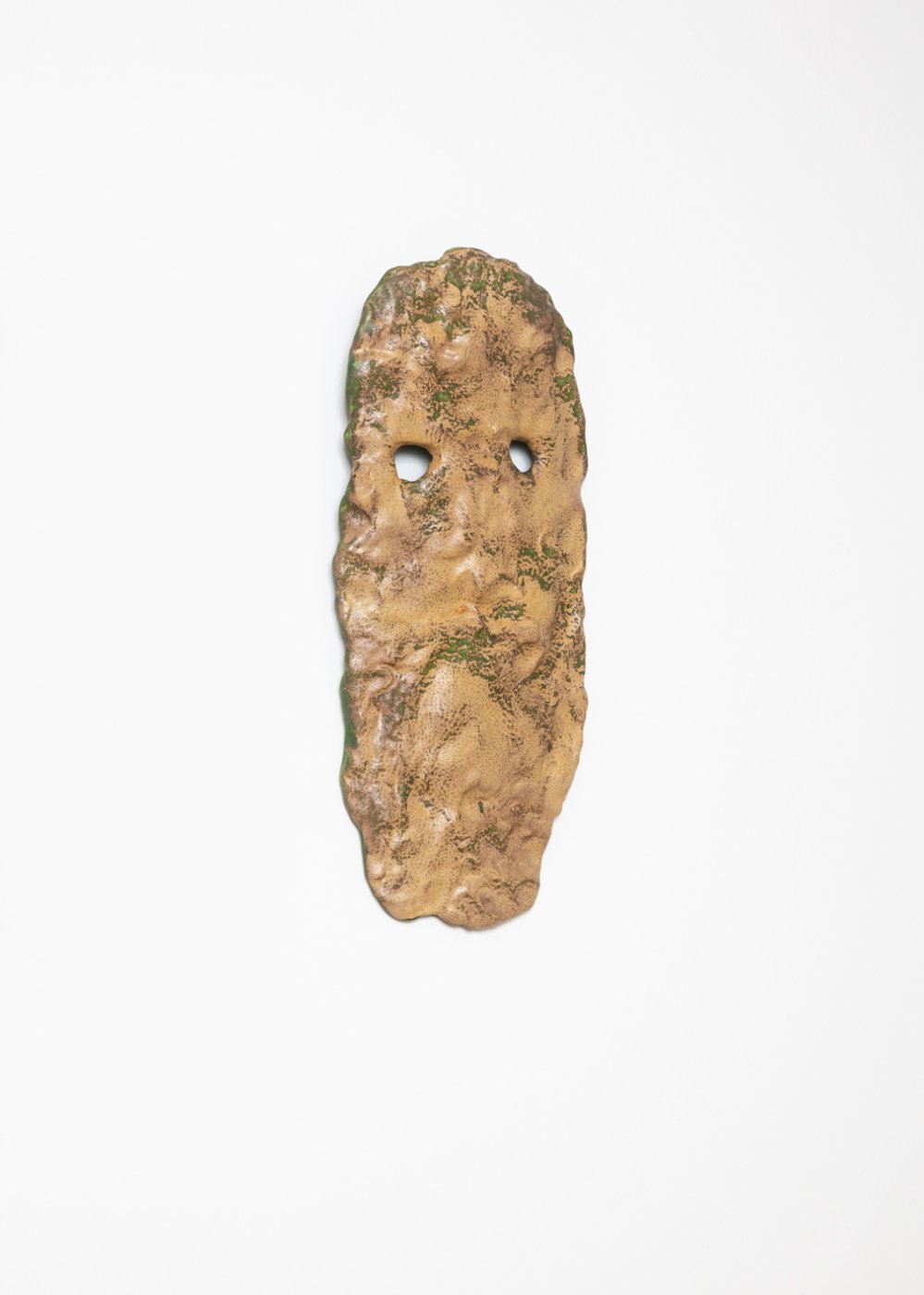Anders Ruhwald
Two Face (Ocher/Green)
2020
glazed ceramics
45 × 20 × 6 cm
glazed ceramics
45 × 20 × 6 cm
About the artist
Anders Herwald Ruhwald (born 1974, Denmark) lives and works in Detroit, MI, USA and graduated from the Royal College of Art in London in 2005. Solo exhibitions include Unit 1: 3583 Dubois at MOCA Cleveland (USA); The State of Things at The Museum of Art and Design in Copenhagen (Denmark); You in Between at Middlesbrough Institute of Modern Art (UK) and more than 30 gallery and museum solo-shows in Asia, Europe and the USA as well as more than 100 group-exhibitions around the world. Ruhwald’s work is represented in over 25 public collections internationally including The Victoria and Albert Museum (UK), Musée des Arts Décoratifs (France), The Denver Art Museum (USA), The Detroit Institute of Art (USA), The Philadelphia Museum of Art (USA) and The National Museum (Sweden). In 2015 Ruhwald was awarded a Knight Foundation grant (USA) to develop a permanent immersive installation inside an apartment in Detroit (USA), which opens later this year. He has also been awarded the Gold Prize at the Icheon International Ceramics Biennale (South Korea) in 2011 and the Sotheby’s Prize (UK) in 2007. Reviews include major publications in the Guardian (UK), Artforum.com (US), and the New York Times Magazine (US). Ruhwald has lectured and taught at universities and colleges around Europe and North-America. From 2008-2017 he was the Artist-in-Residence and head of the Ceramics Department at Cranbrook Academy of Art in Michigan, USA. Artist statement:
“In my practice I work with clay mainly. Sometimes I make installations other times I make objects. Sometimes I make objects that go into installations. Sometimes I make installations that are made of objects.
I have always found it difficult to describe my practice in a few sentences. It seems to me that the description will change depending on when I am asked and where I am at in a specific cycle of organizing and making.
I have worked with ceramics since I was 15 and understand the mechanics of the clay process intuitively. It is a material that I use to think with. I think of it as an extension of the body - a material onto which I can record movement and intention. To me the physical presence of the work is an essential element and ceramics has amazing properties to convey this.
The materiality, weight, scale, balance, surface, colour, and at times the smell of the work is crucial to the reading of the work. At best, I would like the work to insert itself into the world and be present as any other everyday object might be. I care less about representation. The work needs a material presence and an ability to communicate directly because I would like the reading of the work to happen as much with the mind as it does with the body.”
“In my practice I work with clay mainly. Sometimes I make installations other times I make objects. Sometimes I make objects that go into installations. Sometimes I make installations that are made of objects.
I have always found it difficult to describe my practice in a few sentences. It seems to me that the description will change depending on when I am asked and where I am at in a specific cycle of organizing and making.
I have worked with ceramics since I was 15 and understand the mechanics of the clay process intuitively. It is a material that I use to think with. I think of it as an extension of the body - a material onto which I can record movement and intention. To me the physical presence of the work is an essential element and ceramics has amazing properties to convey this.
The materiality, weight, scale, balance, surface, colour, and at times the smell of the work is crucial to the reading of the work. At best, I would like the work to insert itself into the world and be present as any other everyday object might be. I care less about representation. The work needs a material presence and an ability to communicate directly because I would like the reading of the work to happen as much with the mind as it does with the body.”


